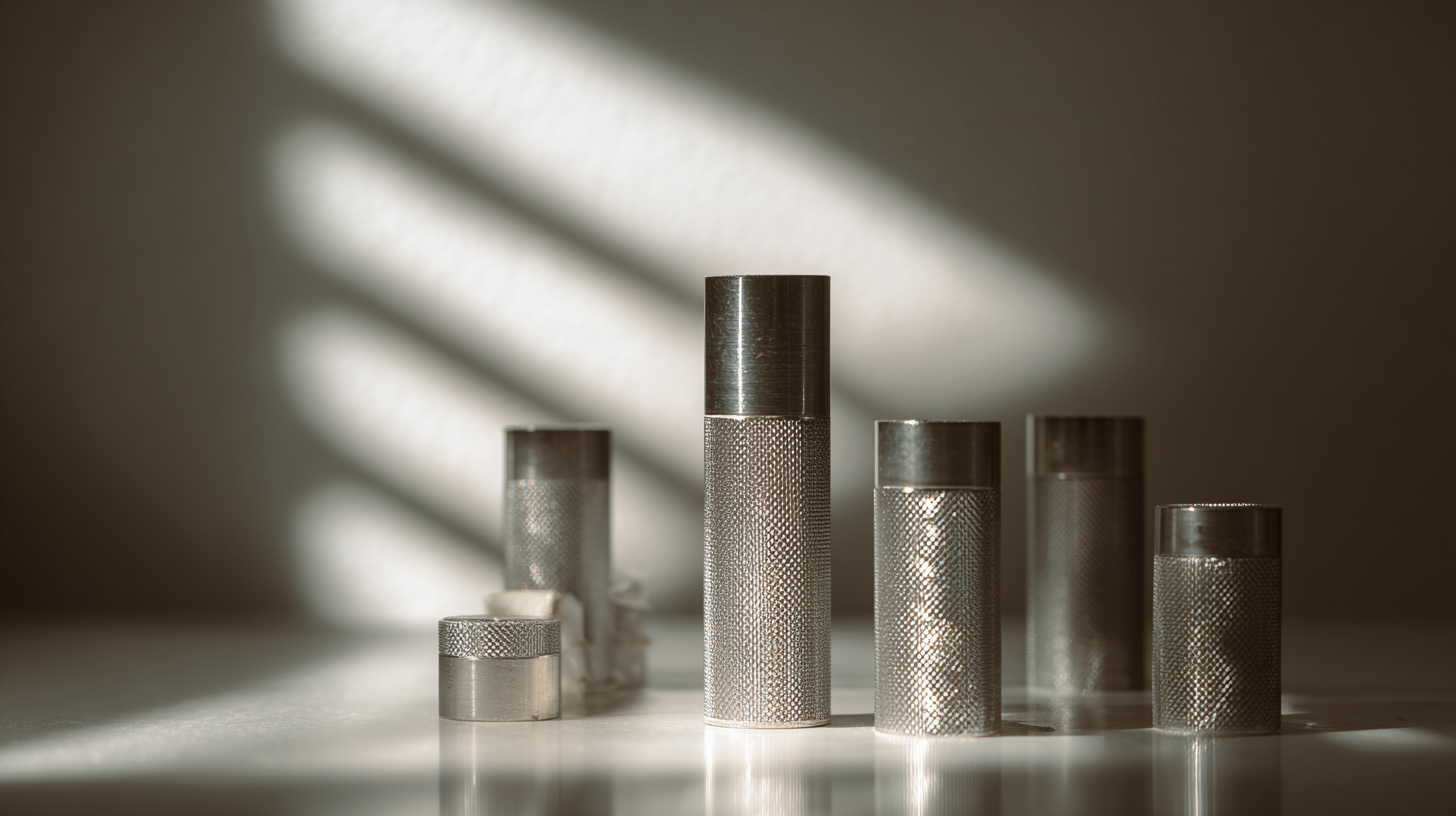About Us | Blog | FAQs | Tips/Troubleshoot | Contact Us | Machine Manuals | Demo Videos
Unlocking the Secrets: Technical Specifications and How to Choose the Best Chamber Sealer for Your Business
In today's competitive market, selecting the right equipment is crucial for businesses aiming to enhance their operational efficiency and product quality. Among the key tools that can make a significant difference is the chamber sealer, a vital piece of machinery that streamlines packaging processes and ensures the longevity of perishable goods.

As a representation of excellence in Chinese manufacturing, chamber sealers have emerged as global leaders, combining advanced technology with robust design to meet diverse packaging needs. In this blog, we will delve into the technical specifications that define a high-quality chamber sealer, explore the various features that can benefit your business, and provide guidance on how to choose the best chamber sealer tailored to your unique requirements.
Whether you're a small startup or an established enterprise, understanding these elements can pave the way for smarter investments and improved operational success.
Table of Contents
[Hide]
Understanding the Importance of Technical Specifications in Chamber Sealers
Understanding the technical specifications of chamber sealers is vital for any business looking to optimize its packaging process. Chamber sealers play a crucial role in preserving food quality, extending shelf life, and reducing waste. Key specifications such as pump power, sealing width, and cycle time can significantly affect the efficiency and effectiveness of your operations. Pay attention to the materials used in construction as well, as this impacts the durability and longevity of the machine.
When choosing the best chamber sealer, consider these tips:
- First, assess your production needs and the volume of items you plan to package. This will help you determine the appropriate size and functionality.
- Second, look for features such as adjustable sealing settings and digital controls, which can enhance the user experience and ensure consistent results.
- Finally, always check for manufacturer support and warranty options, as these factors can save you time and money in the long run.
By focusing on these specifications and tips, you can select a chamber sealer that meets your business needs effectively.
Key Features to Consider When Choosing a Chamber Sealer for Your Business
When selecting a chamber sealer for your business, understanding the key features is crucial to ensure optimal performance and efficiency. One important aspect to consider is the vacuum pump's capacity, which can significantly influence sealing time and quality. According to a report by Packaging Strategies, high-capacity pumps can improve processing speeds by up to 30%, making them ideal for businesses that require rapid turnaround and high-volume production.
Another vital feature is the sealing bar length. A report by the Food and Drug Administration emphasizes that selecting a sealer with an appropriately sized sealing bar enhances packaging versatility, allowing you to accommodate various product sizes. Additionally, businesses should prioritize models with adjustable temperature controls, as over 50% of packaging defects stem from improper sealing temperatures, impacting product shelf life and quality.
Lastly, ease of use and maintenance cannot be overlooked. A study from the International Journal of Food Science indicates that user-friendly models can decrease training time by up to 40%, enabling staff to operate equipment more efficiently. Investing in a chamber sealer that reflects these key specifications will not only streamline your operations but also contribute to the overall success of your packaging process.
Comparing Popular Chamber Sealer Models: What Sets Them Apart?
When it comes to selecting the best chamber sealer for your business, understanding the differences between popular models is crucial. Each chamber sealer offers unique features that cater to various industrial needs.
For instance, some models are designed with advanced vacuuming systems that ensure maximum air removal, which is essential for preserving food quality in restaurants and production facilities. Others come equipped with double seal bars, enhancing the durability of packaging and minimizing the risk of compromised seals, making them ideal for businesses dealing with perishable goods.
Moreover, the size and capacity of chamber sealers can vary significantly, impacting their suitability for different operations. Smaller, compact models may be perfect for small kitchens or startups, while larger, high-capacity units are better suited for large-scale food processing companies. Additionally, some modern sealers incorporate digital controls and programmable settings that allow for greater efficiency and consistency in sealing processes.
When comparing popular chamber sealer models, it’s important to assess these specifications in relation to your specific business needs, ensuring you invest in a machine that optimally supports your operations.
Best Practices for Maintenance and Longevity of Chamber Sealers
When it comes to extending the life of your chamber sealer, proper maintenance is crucial. Regular cleaning is one of the simplest yet most effective practices. Make sure to wipe down the sealing bars and vacuum chamber after each use to prevent residue buildup, which can lead to inefficient sealing and potential damage. Additionally, it’s beneficial to inspect and replace the sealing foil regularly to ensure optimal performance.
Another essential tip is to monitor the machine's operational settings. Keeping an eye on the temperature and vacuum levels can help in avoiding overheating or inadequate sealing, both of which can compromise the quality of your packaging. If you notice any inconsistencies, address them promptly to prevent more significant issues down the line.
Finally, consider scheduling routine professional servicing. Just as you would for any piece of equipment, having a technician check your sealer periodically can catch minor problems before they escalate. Regular servicing can not only enhance the machine's longevity but also ensure that it operates at peak efficiency, keeping your business running smoothly.

Maximizing Efficiency: How to Optimize the Use of Your Chamber Sealer
When it comes to optimizing the use of your chamber sealer, understanding its technical specifications is crucial. These machines are designed to enhance efficiency in food preservation, thereby reducing waste and extending shelf life. The best chamber sealers offer features such as adjustable sealing time, powerful vacuum pumps, and various chamber sizes to accommodate different products. Selecting a model that aligns with your business needs can drastically increase productivity and streamline operations.

To maximize efficiency in your vacuum packing process, consider factors such as the type of materials you are sealing and the speed required for your operations. Utilizing customizable settings can help tailor the sealing process to meet specific requirements. Additionally, regular maintenance and proper usage will ensure your equipment remains in optimal condition. By leveraging these insights, businesses can harness the full potential of their chamber sealers, leading to better quality products and reduced operational costs.

